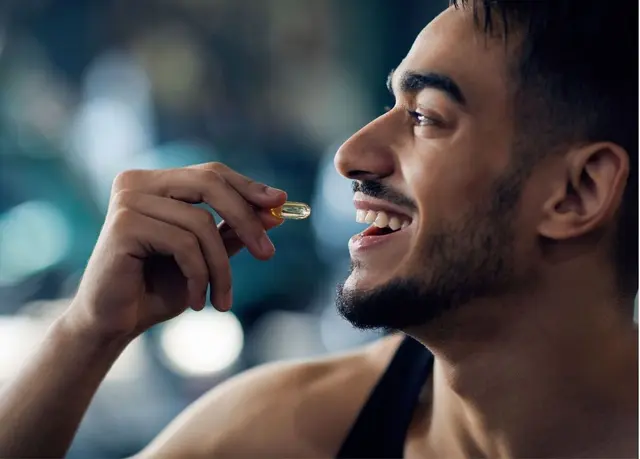Does Creatine Cause Acne? Exploring the Connection

June 17, 2024
Creatine is one of the most popular supplements in the fitness world, known for its ability to boost muscle mass and improve athletic performance. However, some users have raised concerns about a potential link between creatine and acne. If you're searching for the best creatine supplement to enhance your workouts but are worried about its effect on your skin, you're not alone. In this article, we'll dive into whether creatine really causes acne, what the science says, and how you can take steps to minimize any potential side effects.
The Connection Between Creatine and Acne
One of the most common concerns people have when taking creatine is whether it can lead to acne breakouts. Creatine itself doesn't directly cause acne, but it may contribute to changes in the body that could lead to skin issues for some users. Let’s break down the potential reasons behind this misconception:
Hormonal Changes
- Creatine boosts the production of ATP (adenosine triphosphate), which fuels your muscles during intense workouts. While this process helps increase muscle mass and strength, it can also lead to hormonal fluctuations, particularly in testosterone.
- Testosterone levels may slightly increase when taking creatine, especially during high-intensity training. While this increase is generally mild and temporary, testosterone can stimulate the sebaceous glands to produce more oil, which may clog pores and potentially lead to acne breakouts in individuals prone to skin issues.
Dehydration and Skin Health
- Creatine helps muscles retain water, which is great for muscle performance but can sometimes lead to dehydration if you're not consuming enough fluids. Dehydration can cause dry skin, making it more susceptible to irritation, which in turn can exacerbate acne.
- Keeping your skin hydrated is essential for overall health, and when combined with creatine use, it becomes even more important to maintain proper hydration.
Pre-Existing Acne Conditions
- If you already have acne-prone skin, you might notice that intense workouts and creatine supplementation can trigger breakouts. However, this is likely more related to sweat and friction from exercise rather than creatine itself.
- In many cases, people who start taking creatine also increase their workout frequency or intensity, which can lead to more sweating and clogged pores. It's crucial to keep up with a good skincare routine to prevent acne from forming.
Does the Best Creatine Supplement Affect Your Skin?
If you're looking for the best creatine supplement but are concerned about its potential effects on your skin, it's important to remember that not all creatine supplements are the same. Here are a few key points to consider when choosing the right one for your needs:
Pure Creatine Monohydrate
- The most widely studied form of creatine is creatine monohydrate, which is considered safe and effective. Pure creatine monohydrate contains no additives, sweeteners, or artificial ingredients that might irritate your skin.
- If you’re worried about acne, choosing a pure creatine supplement without unnecessary fillers can reduce the likelihood of experiencing skin issues. Many people find that pure creatine is easier on the body and does not cause any adverse reactions.
Creatine Blends and Additives
- Some creatine products contain additional ingredients like artificial sweeteners, flavorings, or caffeine, which can sometimes lead to skin irritation or breakouts. If you're sensitive to these ingredients, it's best to stick to a simple, high-quality creatine monohydrate.
- Check the label before purchasing a creatine supplement, and opt for one with minimal added ingredients to reduce the chances of a skin reaction.
Creatine Timing and Dosage
- While creatine is generally considered safe, the timing and dosage of your intake can play a role in how your body responds. For example, taking too much creatine at once might lead to dehydration, which can affect your skin.
Our Top Recommendations

Optimum Nutrition Micronized Creatine Monohydrate Powder
Micronized for easy mixing, supports muscle growth and endurance.
See on Amazon$0.35 per 5g serving

Nutricost Creatine Monohydrate Micronized Powder
Third-party tested, non-GMO, 5g of pure creatine per serving.
See on Amazon$0.2 per 5g serving

NSF Certified, supports muscle power and recovery.
See on Amazon$0.46 per 5g serving

ProMix Creatine Monohydrate Powder
Micronized, additive-free, ideal for performance and recovery.
See on Amazon$0.36 per 5g serving

NOW Foods Sports Nutrition Unflavored
100% pure creatine, GMP certified, boosts strength and endurance.
See on Amazon$0.2 per 5g serving
- Stick to the recommended dosage (usually around 3-5 grams per day) and make sure to drink plenty of water throughout the day to avoid any dehydration-related skin issues.
Practical Tips for Reducing Acne While Taking Creatine
If you're experiencing acne while taking creatine or are concerned about the possibility, there are several practical steps you can take to minimize the risk. Here’s a list of actionable tips to keep your skin clear while enjoying the benefits of creatine:
1. Stay Hydrated
- Drink plenty of water throughout the day to keep your body and skin hydrated. Aim for at least 8-10 glasses of water daily, especially on workout days when your body may be losing more fluids.
- Proper hydration can help flush out toxins and reduce the risk of dehydration-related breakouts.
2. Maintain a Skincare Routine
- Keep your skin clean by washing your face twice a day with a gentle cleanser, especially after workouts. This helps to remove sweat, oil, and dirt that can clog your pores.
- Use non-comedogenic moisturizers and sunscreen to keep your skin hydrated and protected without clogging pores.
3. Choose the Right Creatine Supplement
- Opt for a high-quality, pure creatine monohydrate supplement. This type of creatine is less likely to cause irritation because it contains fewer additives that could potentially trigger skin issues.
- Avoid creatine blends that contain artificial ingredients, sweeteners, or fillers, as these may exacerbate skin problems.
4. Monitor Your Diet
- A diet high in processed foods, sugar, or dairy may contribute to acne for some individuals. Pay attention to your body and consider making dietary adjustments if you notice breakouts while using creatine.
- Focus on a balanced diet rich in fruits, vegetables, lean protein, and healthy fats to support overall skin health.
5. Avoid Touching Your Face
- Touching your face frequently, especially during or after a workout, can transfer bacteria and sweat to your skin, increasing the likelihood of breakouts. Be mindful of this habit and try to keep your hands off your face.
6. Manage Stress Levels
- Intense training and lifestyle changes can sometimes lead to increased stress, which is known to aggravate acne. Incorporate stress-relief techniques like meditation, yoga, or deep breathing exercises to keep your stress in check and your skin clear.
Conclusion: Can You Find the Best Creatine Without Causing Acne?
The relationship between creatine and acne isn't as direct as some might think. While creatine itself doesn't cause acne, factors like hormonal fluctuations, dehydration, and pre-existing skin conditions can contribute to breakouts. However, with the right approach, you can enjoy the benefits of creatine without compromising your skin health.
When looking for the best creatine, focus on high-quality, pure creatine monohydrate supplements that minimize the risk of skin irritation. By staying hydrated, maintaining a solid skincare routine, and keeping an eye on other potential acne triggers, you can continue your fitness journey without worrying about acne.






